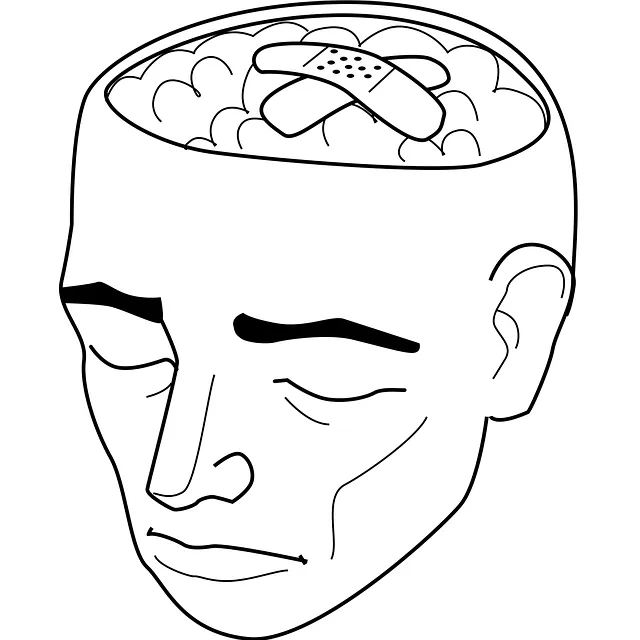The Kaiser Permanente Mental Health Access Center in Englewood faces the challenge of mental illness stigma, which delays patients' access to care. To combat this, the center offers diverse therapeutic services, awareness campaigns, and a culturally sensitive environment. Through community engagement, educational workshops, support groups, and podcasts, they reduce stigma and foster open dialogues about mental health. Their efforts empower individuals, dispel myths, promote early intervention, and build support networks, transforming lives and strengthening community resilience against mental illness. By advocating for equal access to affordable, non-discriminatory care, these centers lead systemic changes in mental healthcare.
Mental illness stigma remains a significant barrier to accessing essential healthcare services. The Kaiser Permanente Mental Health Access Center in Englewood serves as a model for understanding and tackling this issue, offering valuable insights into effective stigma reduction strategies. This article explores various approaches, from community engagement to policy advocacy, examining how these initiatives empower individuals and families affected by mental illness while promoting equal access to care at the Kaiser Permanente center and beyond.
- Understanding Stigma: Barriers to Seeking Help at the Kaiser Permanente Mental Health Access Center Englewood
- Community Engagement: Strategies for Reducing Stigma in Local Networks
- Education and Awareness Campaigns: Empowering Individuals and Families Affected by Mental Illness
- Policy Changes and Advocacy: Ensuring Equal Access to Mental Healthcare Services
Understanding Stigma: Barriers to Seeking Help at the Kaiser Permanente Mental Health Access Center Englewood

Stigma surrounding mental illness remains a significant barrier to individuals seeking help for their well-being. At the Kaiser Permanente Mental Health Access Center Englewood, we encounter many patients who face challenges in recognizing and addressing their mental health concerns due to societal perceptions. The stigma often prevents folks from reaching out, leading to delayed access to much-needed care. Many individuals struggle with feelings of embarrassment or fear of judgment, assuming that seeking help means weakness or personal failure.
Efforts to reduce this stigma are crucial, especially within cultural contexts where mental health discussions might be less open. The Kaiser Permanente center has been at the forefront of these initiatives by promoting awareness campaigns and providing diverse therapeutic services. We offer programs focused on self-esteem improvement and mindfulness meditation, which have proven effective in reducing anxiety and fostering a sense of belonging. Additionally, our commitment to cultural sensitivity in mental healthcare practice ensures that we meet individuals where they are, creating a safe space for everyone to prioritize their mental well-being.
Community Engagement: Strategies for Reducing Stigma in Local Networks

Community engagement is a powerful tool in the fight against mental illness stigma. Local networks play a vital role in fostering understanding and support for individuals facing mental health challenges. Organizations like Kaiser Permanente’s mental health access center in Englewood serve as hubs, offering resources and programs tailored to community needs. Through collaborative efforts, these centers can host educational workshops, facilitate support groups, and even produce a Mental Wellness Podcast Series Production to raise awareness and dispel myths.
Engaging the community encourages open conversations about emotional regulation and self-care routine development for better mental health. By involving local leaders, healthcare providers, and peer supporters, these initiatives create safe spaces where individuals feel comfortable sharing their experiences and seeking help. Such strategies not only reduce stigma but also foster a supportive environment, ensuring that those facing mental health issues know they are not alone.
Education and Awareness Campaigns: Empowering Individuals and Families Affected by Mental Illness

Education and awareness campaigns play a pivotal role in empowering individuals and families affected by mental illness, such as those seeking support at Kaiser Permanente’s Mental Health Access Center in Englewood. These initiatives work to dispel harmful stereotypes associated with mental health conditions, fostering a more inclusive environment where people feel comfortable discussing their experiences openly. Through workshops, seminars, and community events, organizations like Kaiser Permanente equip individuals with knowledge about various mental health issues, including depression prevention strategies and self-care routine development for better mental health.
By promoting emotional intelligence and open conversations, these campaigns encourage early intervention and support networks. They empower people to recognize the signs of distress in themselves and others, breaking down barriers that often prevent individuals from seeking professional help. In turn, this enhances overall well-being and strengthens community resilience against mental illness.
Policy Changes and Advocacy: Ensuring Equal Access to Mental Healthcare Services

Mental illness stigma reduction requires systemic changes, beginning with policy reforms and advocacy for equal access to mental healthcare services. Organizations like Kaiser Permanente’s Mental Health Access Centers in Englewood exemplify progressive initiatives aimed at destigmatization. These centers serve as hubs, providing comprehensive care, from depression prevention programs to trauma support services, all under one roof. By integrating diverse treatment options, these facilities challenge societal norms and promote understanding.
Policy changes are crucial here; they ensure that mental health services are accessible, affordable, and non-discriminatory. Advocacy groups play a vital role in pushing for such reforms, emphasizing the need for conflict resolution techniques to address barriers faced by individuals seeking help. This collective effort paves the way for a more inclusive healthcare system where mental illness is treated with the same urgency as physical ailments.
Stigma reduction efforts, as demonstrated by the Kaiser Permanente mental health access center Englewood’s initiatives, play a pivotal role in improving access to mental healthcare. By addressing barriers through community engagement, education, and policy advocacy, we can foster an environment where individuals feel empowered to seek support without fear of judgment. These strategies collectively work towards breaking down the walls of stigma surrounding mental illness, ensuring that everyone has equal opportunities to heal and thrive.






